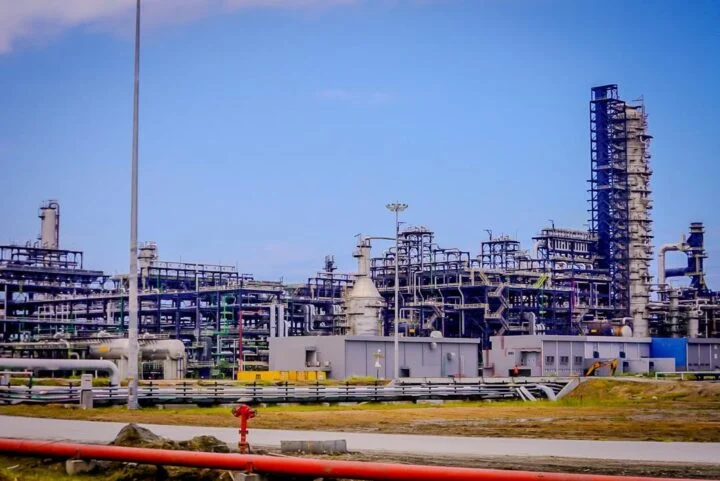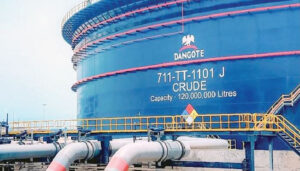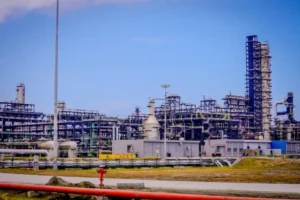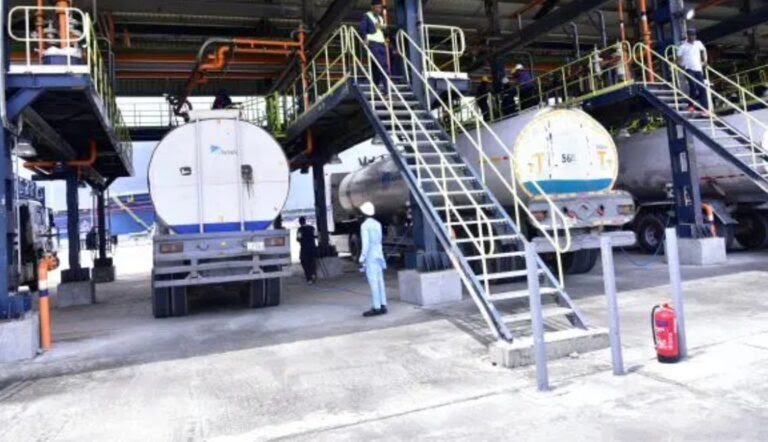
Dangote Refinery Sacks All Nigerian Workers Within 24 Hours of Joining PENGASSAN
- Business
- 26.09.2025
- No Comment
- 10
Dangote Refinery Sacks All Nigerian Workers Within 24 Hours of Joining PENGASSAN
The Dangote Petroleum Refinery, one of Africa’s largest industrial projects and Nigeria’s flagship refinery owned by business magnate Aliko Dangote, has terminated the employment of all its Nigerian workers.
This move comes less than 24 hours after the majority of its workforce reportedly joined the Petroleum and Natural Gas Senior Staff Association of Nigeria (PENGASSAN), sparking widespread controversy and concern.
The shocking news was made public through a statement shared on X (formerly Twitter) on Wednesday by political commentator Imran Wakili.
Wakili revealed that Dangote Refinery had officially laid off all of its Nigerian workers under what it termed a “reorganization” exercise.

In his post, Wakili stated: “Dangote Refinery has officially laid off all of its Nigerian workers under the guise of ‘reorganization,’ less than 24 hours after 90% of them joined PENGASSAN.”
According to a memo dated September 25, 2025, signed by the Chief General Manager of Human Asset Management, Femi Adekunle, and posted online by Wakili, the company explained that the decision was taken as part of a “total re-organisation” of the plant.
The memo cited reported cases of sabotage in different units of the refinery as a major factor necessitating the drastic action.
The internal notice directed all affected staff to immediately surrender any company property in their possession to their line managers and obtain exit clearance without delay.

The memo further instructed the finance department to compute benefits and entitlements of the dismissed staff for payment in line with the terms of their employment contracts.
This step, according to management, is aimed at ensuring that employees receive what is due to them despite the abrupt termination.
Additionally, the refinery’s management expressed its appreciation to the dismissed workers for their services during their tenure at the facility.
This development is unfolding amid an ongoing trade dispute between Dangote Refinery and PENGASSAN over issues related to unionization.
The Petroleum and Natural Gas Senior Staff Association of Nigeria is one of the most powerful unions in the oil and gas sector, with a long history of advocating for workers’ rights and benefits.
According to reports, 90 percent of the Nigerian workforce at the refinery joined PENGASSAN shortly before the mass layoffs were announced.
Observers believe that the timing of the terminations raises serious questions about the company’s motives and its commitment to labor rights.

The termination of all Nigerian workers at the Dangote Refinery could have far-reaching economic and social implications.
As one of the largest industrial employers in the country, the refinery’s action may significantly impact thousands of families dependent on the workers’ incomes.
Analysts have also warned that the move might deter skilled professionals from seeking employment at the refinery in the future.
Furthermore, the development could trigger a wider labor dispute within Nigeria’s oil and gas sector, as unions may see this as an attack on their constitutional right to freedom of association.
Social media platforms, particularly X, have been abuzz with reactions to the announcement.
Many Nigerians expressed shock and outrage at the timing and scale of the layoffs, calling for government intervention and an investigation into the refinery’s actions.
Labor leaders have also signaled their intention to take up the matter at the highest levels, potentially calling for strikes, legal action, or mediation by the Ministry of Labor and Employment.
The Dangote Petroleum Refinery, located in Lekki, Lagos State, is a multi-billion-dollar project spearheaded by Africa’s richest man, Aliko Dangote.
Designed to process 650,000 barrels of crude oil per day, the refinery is touted as a game changer for Nigeria’s energy sector, aimed at reducing the country’s reliance on imported petroleum products.
However, the facility has faced several challenges, ranging from delays in commissioning to disputes over staffing and local content compliance.
The recent mass layoff adds to the growing list of controversies surrounding the project.
Given the magnitude of the layoffs and their potential impact on the local economy, stakeholders are calling on the federal government and relevant agencies to intervene.
Many believe that this is a critical moment for the Ministry of Labor and Employment, as well as the Nigerian National Petroleum Company Limited (NNPCL), to step in and mediate the dispute between Dangote Refinery and its workforce.
If left unaddressed, the crisis could set a dangerous precedent for workers’ rights in Nigeria’s oil and gas sector.
The decision by Dangote Petroleum Refinery to terminate the employment of all its Nigerian workers less than 24 hours after they joined PENGASSAN has sent shockwaves across the country.
While the company cites “total re-organisation” and “sabotage” as reasons for the mass layoff, critics argue that the timing suggests a crackdown on unionization efforts.
As the situation unfolds, all eyes will be on the government, labor unions, and the management of the refinery to see how the dispute is resolved.
Whether this incident will lead to a landmark case for workers’ rights or simply fade into the background remains to be seen.
One thing is clear: the Dangote Refinery saga highlights the urgent need for stronger labor protections and transparent industrial relations in Nigeria.







